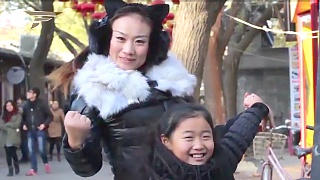
|
With Andy see the World ...
Visitor Guide to ShanHaiGuan
Overview
ShanHaiGuan, located in QinHuangDao City, HeBei Province, is a renowned historical site known as the "First Pass Under Heaven." It is one of the most well-preserved and strategically important passes of the Great Wall of China, offering visitors a fascinating glimpse into China's ancient military history and stunning coastal scenery.
Getting There
By Air: The nearest airport is QinHuangDao Beidaihe Airport (BPE), located about 20 kilometers from ShanHaiGuan. From the airport, you can take a taxi or a shuttle bus to ShanHaiGuan.
By Train: ShanHaiGuan Railway Station is well-connected with major cities like BeiJing, TianJin, and Shenyang. High-speed trains make it convenient to reach ShanHaiGuan from these cities.
By Bus: Long-distance buses are available from nearby cities, including QinHuangDao and TianJin. The main bus station in ShanHaiGuan is ShanHaiGuan Long-Distance Bus Station.
Getting Around
Walking: The historic area of ShanHaiGuan is best explored on foot, allowing you to fully appreciate the ancient architecture and fortifications.
Biking: Renting a bicycle is a great way to explore the surrounding areas and nearby attractions at your own pace.
Local Transport: Taxis and local buses are available for traveling to and from different parts of ShanHaiGuan and QinHuangDao.
Main Attractions
First Pass Under Heaven (Zhenyuan Tower)
This iconic gate is the easternmost point of the Great Wall and marks the starting point of the ancient defense line. The tower offers panoramic views of the surrounding area and the Great Wall stretching towards the mountains and the sea.
Old Dragon's Head (Laolongtou)
Located where the Great Wall meets the Bohai Sea, the Old Dragon's Head is a dramatic and picturesque site. The fortifications extend into the sea, resembling a dragon drinking water. It's a unique and breathtaking part of the Great Wall.
ShanHaiGuan Great Wall Museum
The museum provides a comprehensive overview of the history, construction, and significance of the Great Wall. Exhibits include artifacts, models, and interactive displays that bring the history of this monumental structure to life.
Jiumenkou Great Wall
This section of the Great Wall is unique for its series of nine gates and the river that flows beneath it. The Jiumenkou Great Wall is a UNESCO World Heritage Site and offers a fascinating look at ancient military engineering.
Wang Family Courtyard
This well-preserved traditional courtyard residence offers a glimpse into the lifestyle of a wealthy family during the Ming and Qing Dynasties. The courtyard is beautifully decorated with intricate carvings and traditional furnishings.
Local Cuisine
ShanHaiGuan's cuisine is influenced by its coastal location and northern Chinese culinary traditions. Here are some must-try dishes:
Seafood: Fresh seafood from the Bohai Sea, including fish, shrimp, and crab, is a highlight of local dining.
QinHuangDao Dumplings: These dumplings are known for their thin skins and generous fillings, often served with a dipping sauce.
Jiaozi (Dumplings): A variety of steamed or boiled dumplings filled with meat, vegetables, or seafood.
Local Snacks: Try street food such as fried dough twists, roasted sweet potatoes, and various grilled skewers.
Shopping
Local Handicrafts: ShanHaiGuan is known for its traditional handicrafts, including paper-cutting, clay figurines, and embroidery. These items make for unique souvenirs.
Antique Markets: Explore local antique markets for historical artifacts, vintage items, and collectibles.
Seafood Markets: Purchase fresh or dried seafood to take home or enjoy while you're in the area.
Accommodation
Luxury Hotels: For a high-end stay, consider hotels like the Shangri-La Hotel QinHuangDao or the Sheraton QinHuangDao Beidaihe Hotel, both offering excellent amenities and service.
Mid-Range Hotels: Options such as the Best Western Junyu Grand Hotel and QinHuangDao Grand Hotel provide comfortable accommodations at reasonable prices.
Budget Hotels: For budget travelers, hostels and budget hotels like the ShanHaiGuan Youth Hostel offer affordable and convenient lodging.
Tips for Visitors
Best Time to Visit: The best times to visit ShanHaiGuan are spring (April to June) and autumn (September to November) when the weather is mild and pleasant.
Clothing: Wear comfortable walking shoes and dress in layers to accommodate changing temperatures. An umbrella or raincoat is useful during the rainy season.
Respect Local Customs: Be respectful of local customs and traditions. Dress modestly and be mindful of local etiquette, especially when visiting historical and cultural sites.
Language: While Mandarin is widely spoken, learning a few basic phrases or using a translation app can be very helpful.
Plan Your Visit: ShanHaiGuan is best explored at a leisurely pace. Take your time to wander through the historical sites, visit local shops, and enjoy the tranquil atmosphere.
Conclusion
ShanHaiGuan, with its rich history, strategic importance, and stunning coastal scenery, offers a unique and memorable travel experience. Whether you're exploring ancient fortifications, savoring fresh seafood, or strolling along the Great Wall, ShanHaiGuan provides an unforgettable experience. Plan your visit carefully to make the most of your trip to this fascinating destination in HeBei Province.
|
 Western imperialism and the MeKong river
Western imperialism and the MeKong river


